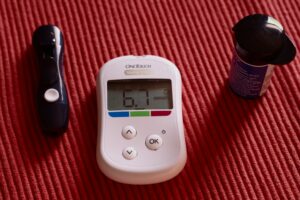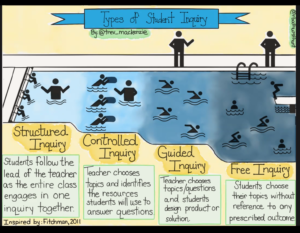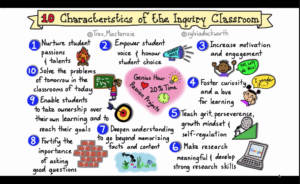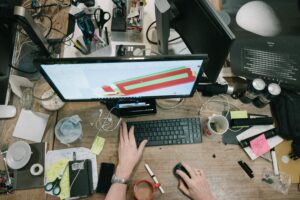Chantelle’s presentation and visit really highlighted the need for increased access to assistive technology in the classroom and the overall need for inclusive education. As I tend to do, I want to first reflect on my previous experiences surrounding assistive technologies and inclusive education before I discuss the resources provided to us.

Although not directly applicable to the technology side of things, when I volunteered with VISAS (Vancouver Island Society for Adaptive Snowsports) there was a plethora of options for inclusive education such as sit-skis, tethers, and outriggers. Teaching here was one of the first times I consciously realized the necessary adaptations and adjustments that need to be made for inclusive educational opportunities.

These experiences teaching with VISAS has inspired me to continuously learn how to provide inclusive education for learners in a variety of environments. Although I am still quite a novice on the technology side of things when it comes to inclusive education, I’ve started to learn about voice command apps such as Mathtalk and speech recognition apps such as Co:Writer. I plan on investigating further into how to use apps such as these, as well as BCEdAccess resources in order to be an educator who can provide thoroughly inclusive educational opportunities to my future students.

As a type 1 diabetic, I am particularly interested in the impact changes in blood sugar levels have on a student’s ability to focus in educational environments. Although this is anecdotal, I personally have an extremely difficult time focussing in class (or on tests/assignments) for quite some time after I have experienced low or high blood glucose (BG), with the worst being when I’ve had a sleepless night due to BG concerns. Although I have frequently alerted my professors to my diagnosis and they have been very understanding, I do with that there was some piece of assistive technology that could help diabetics focus after a rough BG period. Although this would likely have to be a proactive solution, such as a constant BG monitoring system (which already exists) in order to prevent BG complications, I think that an assistive technology that takes into consideration the side effects of BG issues would be life changing.
Overall, my experiences volunteering with VISAS and as a type 1 diabetic have helped alert me to the necessity of inclusive education and assistive technologies and I wish to bring this knowledge into the classroom by providing aid to my future students wherever necessary.


